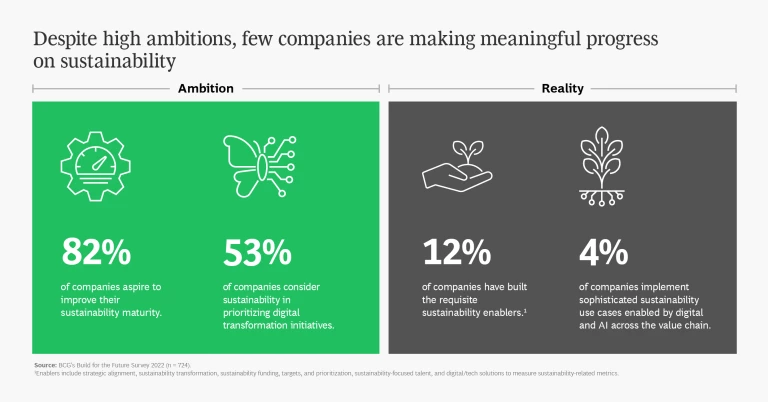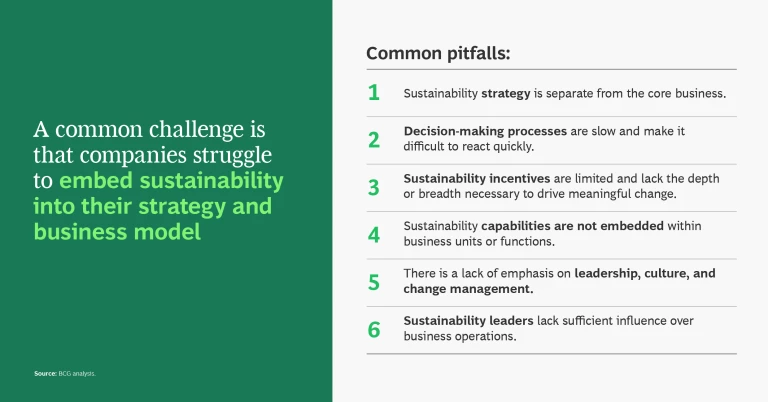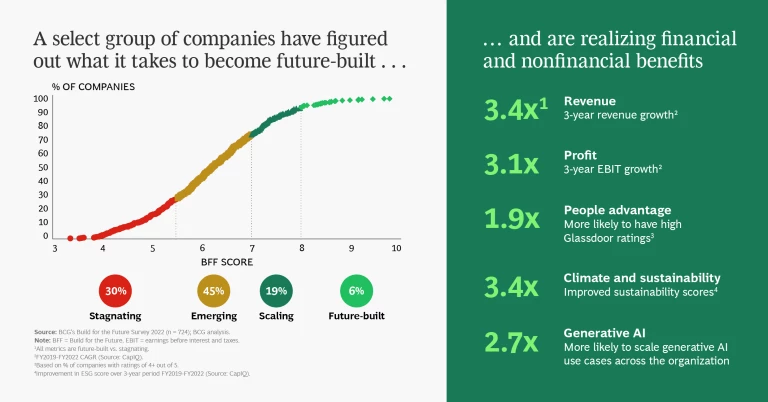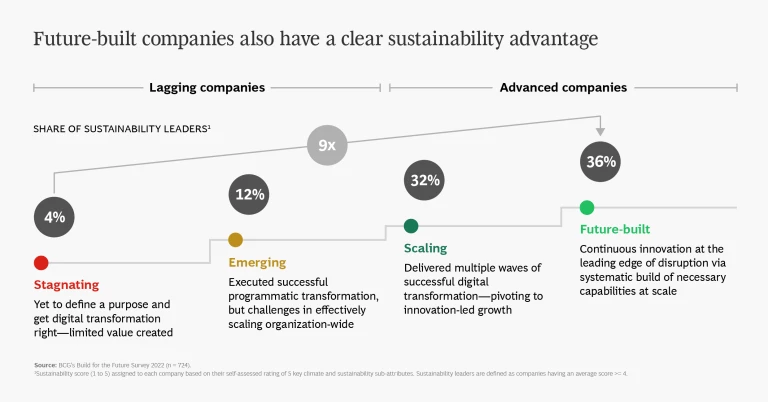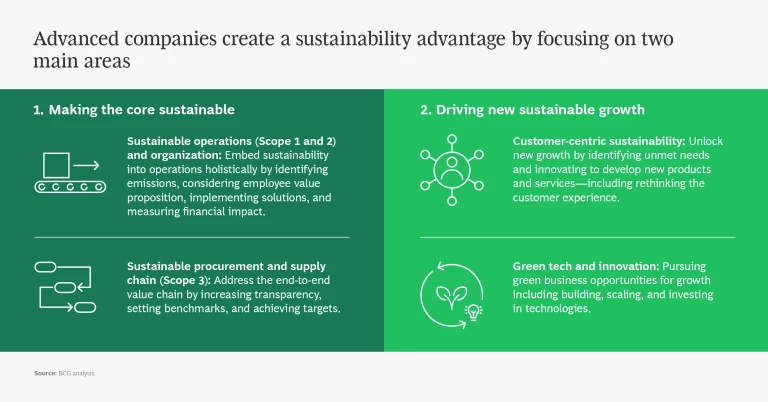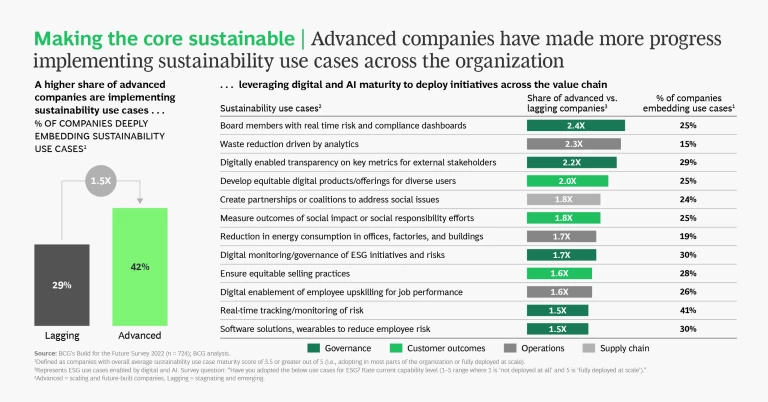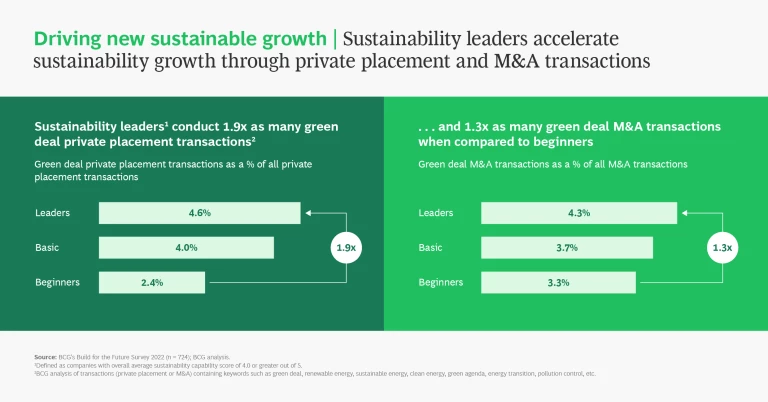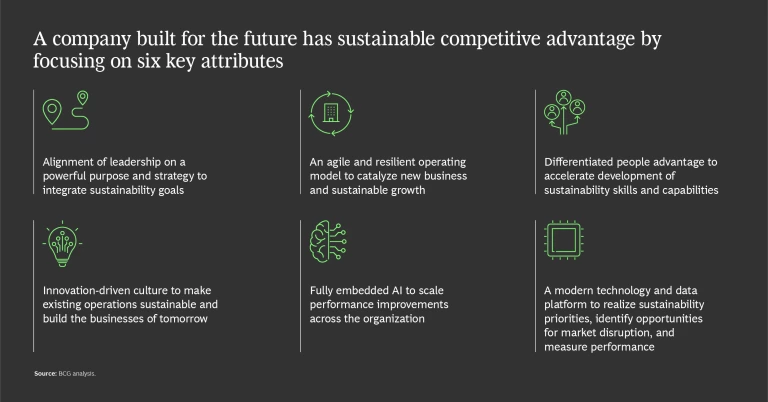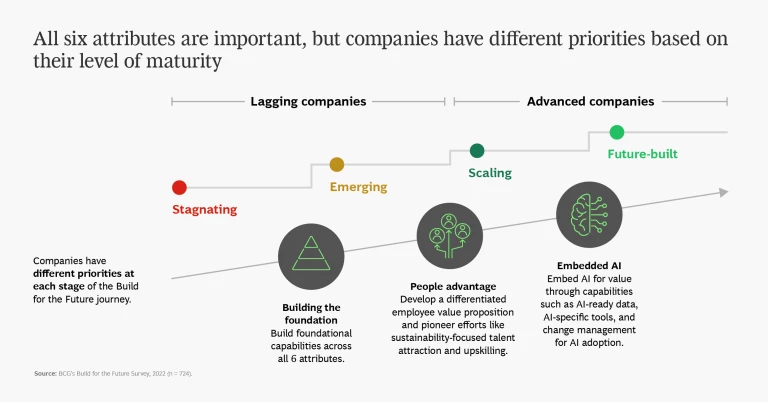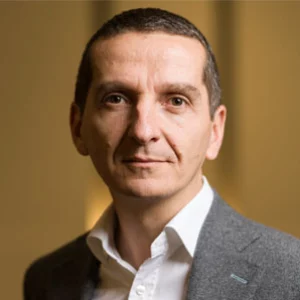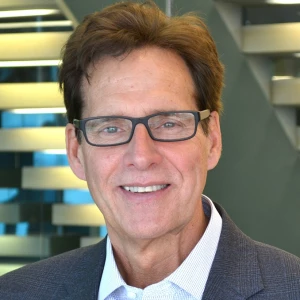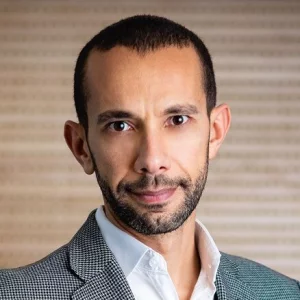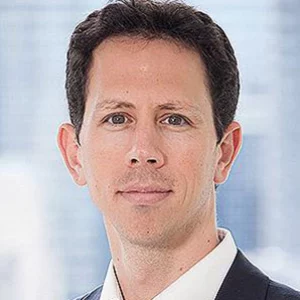The following insights are part of BCG’s Build for the Future series, based on three years of research conducted on digital transformations at major organizations around the globe.
Companies are setting sustainability goals, but many are finding it much harder to generate real gains in terms of overall impact. One common challenge is that organizations often try to solve the sustainability challenge separately, instead of embedding it into their business model. A growing body of BCG research shows that companies that build for the future are taking a more holistic approach to sustainability that is yielding financial and nonfinancial benefits. By building up their capabilities across a wide range of areas, these companies create a competitive advantage from sustainability, even as they solve other business challenges.
Build for the Future
Our latest survey asked all participants about five areas that are fundamental to success, the emphasis of transformation efforts, how successful they have been, and the degree to which each of more than 50 potential influencing capabilities were in place. We then used the resulting data set to analyze which combination of capabilities, if built sufficiently well, had the biggest impact on future readiness and which combination differentiated future-built organizations from those facing a greater risk of disruption. Six attributes emerged from this analysis and, in our judgment, serve as the best descriptors for leading companies.
From this research, we identified the path that companies must take to become built for the future. We’ve reconciled the challenge of what these companies need to do (identifying which initiatives drive the most value by sector) with how to do it (determining which capabilities drive success and how to build them fast). CEOs can tailor this new playbook to their company-specific change agendas. Learn more about our Build for the Future campaign here.
Learn more about what sets these companies apart in the slideshow below.
Few Companies Lead the Way, but Sustainability Is a Competitive Advantage
Pressure on companies to take action to slow the rate of climate change is growing from regulators, customers, investors, and other stakeholders. Yet many organizations are not delivering. In our Build for the Future research, approximately 80% of companies aspire to be sustainability leaders in the next three years, but less than 5% are systematically implementing advanced use cases to generate sustainability and societal benefits .
Leading companies create a competitive advantage from sustainability in two major ways:
Making the core sustainable. First, they innovate and transform their existing organization, operations (to reduce Scope 1 and Scope 2 emissions), and supply chain (Scope 3 emissions) to reduce their environmental impact and become more inclusive. In doing so, these companies mitigate risks to their business from climate-related disruptions, increased regulation, and other factors, becoming more resilient even as they reduce costs. For example, IKEA is shifting its business model to become fully circular across a range of initiatives by 2030. Furniture designs now emphasize renewable materials and recycled contents, with products that are built to be more durable and repairable.
Driving new sustainable growth. Sustainability leaders also grow by innovating their business model, developing new offerings, and acquiring green businesses. Schneider Electric developed a new platform called EcoStruxure, which includes connected products and sensors, control hubs, apps, analytics, and services, all aimed at helping customers measure and improve their sustainability performance. Since launch, the platform has been deployed in almost 500,000 sites and now connects more than 1 billion devices, according to the company. Schneider Electric’s sustainability transformation has seen the company triple in size, growing from €9 billion in 2003 to €34 billion in revenues in 2022.
Blueprint to Build for the Future in Sustainability
One key finding from our research is that 36% of future-built companies are also leading in terms of sustainability, compared with just 4% for stagnating companies—a nine-fold increase. What separates these future-built companies? We have analyzed the differences and developed a Build for the Future framework. It includes six elements, each of which has a sustainability component:
- Leadership aligned around purpose and strategy , integrating sustainability and social impact goals. Leaders must articulate a compelling “why” that explains the underlying rationale to stakeholders.
- An agile, resilient operating model that gains an advantage from sustainability , reimagining business outcomes and developing new offerings that can catalyze sustainable growth. Companies need to create new strategies and options for the future, balancing risks and changing economics. Sustainability metrics need to be integrated into business models and employees’ roles.
- A differentiated people advantage, by developing sustainability skills and capabilities. Employees need the right training and incentives, managers need sufficient autonomy, and upskilling efforts need to be rethought to include sustainability. Similarly, an inclusive culture helps all employees thrive and improves the overall employee value proposition.
- A sustainability-oriented, innovation-driven culture, to bring new ideas to the challenge of sustainability, particularly as technology evolves. Companies need to report progress and celebrate success.
- Embedded AI, to implement advanced use cases and scale those with the most potential. Many measurement and reporting solutions can operate autonomously, with AI doing the bulk of the work in analyzing data and generating insights to optimize the use of energy, materials, and other resources.
- A modern tech and data platform, to quickly identify sustainability priorities, rapidly identify opportunities, mitigate risks, and measure performance. Leaders should constantly assess and implement promising new digital solutions.
Sustainability is a complex challenge, and companies simply cannot succeed through isolated, standalone efforts. Instead, they need an all-of-the-above approach, applying the six elements of the Build for the Future framework and integrating sustainability into their business model, their overall strategy, and everything they do. As our data shows, that approach yields a range of benefits. Perhaps the most important? Helping to protect the environment and better meet the needs of all stakeholders.

